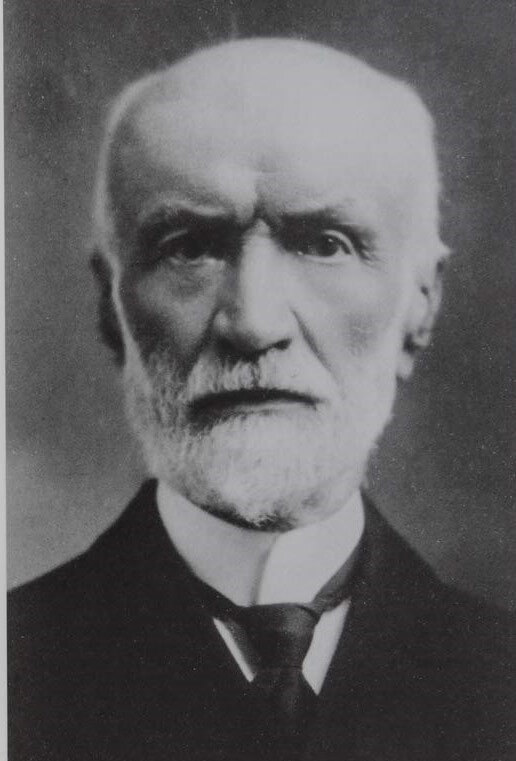
When they elected old Brisset Prince des Penseurs, Romains, Vildrac and Chennevière and the rest of them before the world was given over to wars Quand vous serez bien vieille remember that I have remembered, mia pargoletta, and pass on the tradition
—Ezra Pound, “Canto LXXX”
Jean-Pierre Brisset (1837-1919) was a French writer. He was an auto-didact and was considered to be a “fou littéraire.” He was listed as a saint on Alfred Jarry’s “Pataphysics Calendar,” and was featured in André Breton’s 1940 Anthology of Black Humor.
Brisset was born into a peasant family iin La Sauvagère. He left school at age twelve to help on the family farm, and apprenticed as a pastry chef in Paris three years later. In 1855, he enlisted in the army for seven years and fought in the Crimean War. In 1859, during the war in Italy against the Austrians, he was wounded at the Battle of Magenta and taken prisoner. Promoted to second lieutenant, he served in the Franco-Prussian War and was taken prisoner again; he was sent to Magdeburg in Saxony, where he learned German.
In 1871, he published La natation ou l’art de nager appris seul en moins d’une heure [Learning the art of swimming alone in less than an hour], and then resigned from the Army and moved to Marseilles. He filed a patent for “airlift swimming trunks and belt with a double compensatory reservoir,” though the endeavor to market his contraption was a complete failure. He returned to Magdeburg, where he earned his living as a language teacher, developing a method for learning French, which he self-published in 1874.
Brisset became stationmaster at the railway station of Angers, and later of L’Aigle. In his major philosophical work, La science de Dieu ou la creation de l’homme [The Science of God or the Creation of Man], published in 1900, Brisset argued contended that humans were descended from frogs, a claim he supported by comparing the French and frog languages (e.g., “logement” = dwelling comes from “l’eau” = water). He was serious about his “morosophy” (the wisdom of fools) and authored numrous books and pamphlets that he had printed and distributed at his own expense.
In 1912, the novelist Jules Romains, who had read Brisset’s books God’s Mystery and The Human Origins, founded a “Society for Ideology” which set up a (rigged) election to vote for the Prince des Penseurs, “The Prince of Thinkers.” Brisset, then seventy-eight, solidly beat out the better-known second-place candidate, Henri Bergson. The Election Committee then called Brisset to Paris in April of 1913, where he was received at the Monparnasse train station and acclaimed with great pomp. He was treated to a poem that Charles Vildrac had written especially for the occasion, and invited to the Pantheon to speak at the foot of Rodin’s statue, The Thinker, where he gave emotional words of thanks for this unexpected late recognition of his work. Newspapers exposed the hoax the next day. Brisset died in 1919, aged 81, at La Ferté-Macé.
Brisset’s work was praised by surrealists such as Max Jacob and Stefan Zweig, and important texts have been written on Brisset by Marcel Duchamp, André Breton, Raymond Queneau, and Michel Foucault. Perhaps Brisset’s best-known work is the poem “Les dents, la bouche” (below), which is largely untranslatable due to its reliance on paronymy. Foucault cites the poem in his well-known essay on Deleuze, “Theatrum Philosophicum,” though without naming Brisset.